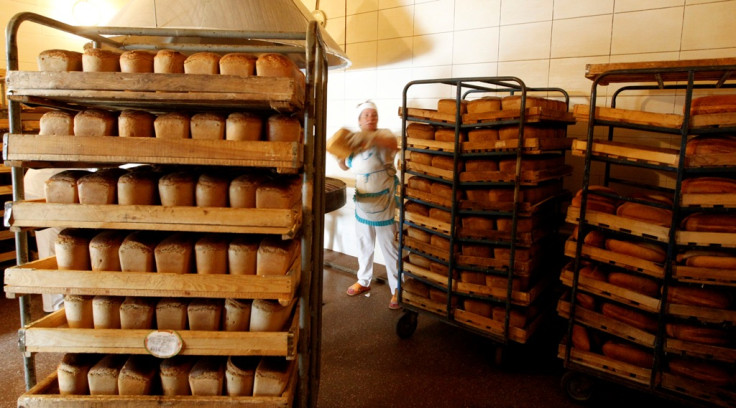Rising atmospheric carbon dioxide levels make for poor bread loaves

Rising carbon dioxide levels not only melt glaciers and trigger heat waves, they also can result in wheat dough that refuses to rise, making for poor loaves.
Researchers at the Victorian government and Melbourne University show that elevated carbon dioxide levels increase the size of wheat plants and make them more efficient at using water, but affect the quality of the grain by reducing protein content.
The team studied crops such as wheat, lentils, canola and field pea grown in the open, surrounded by thin tubes that eject carbon dioxide into the air around the plants.
Dr Glenn Fitzgerald, a senior researcher for the Victorian government, who led the study, said the amount of protein in the grain can reduce by 2% to 14% if carbon dioxide levels increase as expected.
He said: "As atmospheric concentration of carbon dioxide goes up, it reduces the nitrogen levels in plants and leaves and that reduces the protein in the grain. The protein in the grain affects the proteins in the flour and it leads to changes in the elasticity and strength of the dough."
The ratio of proteins was altered significantly, affecting the rising dough used for making bread.
A recent study by researchers at the University of Gothenburg saw that rising levels of carbon dioxide in the atmosphere affect absorption of nitrogen by plants, which is a vital nutrient for most crops.
Nitrogen is a major component of amino acids, the building blocks of proteins. While nitrogen is present in air, most plants absorb it from soil through the roots. Nitrogen gets into the soil by being "fixed" from the air by microbes and certain plants like soy.
Most of the nitrogen is used by the plant to produce protein (in the form of enzymes) and nucleic acids.
The group is now working to see if they can reverse the protein imbalance through selective breeding of new varieties of wheat without compromising on the increased crop growth.
Yields increase by about 25%, on average, under elevated carbon dioxide.
It takes around 15 years to build a new trait into a new variety of a crop.
Since pre-industrial times, carbon dioxide has risen 110 parts per million (ppm) to cross 400ppm this year. It is expected to rise to 550ppm by 2050.
Studies done at Michigan and elsewhere have shown that the ability of plants to store excess carbon under warming conditions would also be hampered due to reduced access to nitrogen.
© Copyright IBTimes 2025. All rights reserved.





















